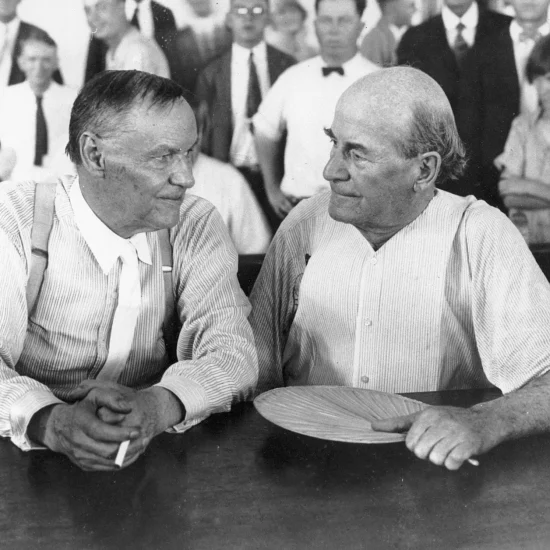
There’s a buzzword floating around in political space that is like the debris filling the orbit around the earth. That word is “wokeness.” The word disembodied of definition or meaning still scares. Some liberals accuse conservatives of not being woke enough. Conservatives make fun of “wokeness.” The word, for a time, took the place of political correctness. Both words became emotional weapons to be thrown at one another. They became words that stick to the bodies of others – critical, demeaning, hurtful words. I am criticized by a church member or two are being “too woke.”

Rodney Kennedy
The Gospels have a lot to say about being awake. Jesus frequently tells his followers, “Wake up!” Keep awake, therefore, for you do not know on what day your Lord is coming. Keep awake, therefore, for you know neither the day nor the hour. And what I say to you I say to all: Keep awake.”
When Jesus was pouring out his heart in the Garden of Gethsemane, his disciples fell asleep. What a parable of the church. Jesus at work, praying, discerning God’s will; his disciples asleep. What does Jesus say? Of all things, he asks Peter, “So, could you not stay awake with me one hour? Stay awake and pray that you may not come into the time of trial; the spirit indeed is willing, but the flesh is weak.”
What does it mean to be biblically woke? Sometimes wokeness is a matter of being motivated by someone else to shake us out of apathy, the doldrums, or from being complacent.
Who wants to struggle with a Holy Book that tells us we must rethink how we have been thinking? Dietrich Bonhoeffer noted that we prefer to read the Scripture “four ourselves,” in order to reassure ourselves that what we have always believed will always be the truth. We all think we have as much epistemic power as the next person. “Who do you think you are telling me I have to do this or that?” We are not much interested in rethinking much of anything. Sometimes we need motivation. We are not all self-starters. There’s a lazy streak in the church. People who flock to churches these days are more fans than followers of Jesus. Fandom rules the church. And fans are there for the enjoyment, the pleasure, the fun, not the commitment, not rethinking, not struggling with commitment.
What does it mean to be biblically woke? It means for our eyes to be opened to the teaching of Jesus. Once we lived one way, thought one way, and preached one way. Now, we are “woke,” and we are different. As Paul puts it in I Corinthians 13: “When I was a child, I spoke like a child, I thought like a child, I reasoned like a child. When I became an adult, I put an end to childish ways.” Harder to make this journey than we realize huh?
As a child, I believed Adam and Eve were real people, historical characters in an actual garden. My daddy believed it and his daddy before him. My preacher believed it. My Sunday school teachers believed it. I wasn’t going to go against all the family tradition, all those generations of Bible teaching. If someone had asked me why I believed these things, I would have said, “I’m just carrying on an old family tradition.” Raney, one of my favorite characters in a novel: “I’ve been going to Bethel Free Will Baptist Church for twenty-four years now, and Mr. Brooks, Mr. Tolley, Mr. Honeycutt, and all these other men have been studying the Bible for all their lives and they say it’s grape juice. All added together they’ve probably studied the Bible over a hundred years. I’m not going to sit in my own kitchen and go against that.” That’s how I felt back then. But I don’t believe that now. I became woke. Here, the word means I learned better. I became educated. I learned that the story was true but didn’t actually happen. Being biblically woke means learning to read the Bible with a view to repentance, to change, to find and do God’s will.
What does it mean to be biblically woke? Here’s one powerful example. Saul, on the road to Damascus, was one of the great unwoke. He was on a mission to arrest, imprison, and execute all the followers of Jesus he could find. In Acts 9:1, Luke describes the pathos of Saul: “Meanwhile Saul, still breathing threats and murder against the disciples of the Lord, went to the high priest, and asked for letters to the synagogues at Damascus, so that if he found any that belonged to the Way, men or women, he might bring them bound to Jerusalem.” This biblical description fits evangelical attitudes like a fine leather glove – an amalgamation of at least a century of perceived persecution, bitterness, anger, revenge, and a need to strike out at the enemy. This story nearly yells at us: religious people can get it wrong, badly wrong.

John Canada / Unsplash
Generations and generations and generations of being the people of God, and now it’s as if it never counted for much. All your family and national traditions, all that you have ever known and believed are now challenged and dismissed from the board. Every belief held dear, every moment toward which your life is pointed, now meaningless? Everything that grandfather and father and now you believed, gone? Every stance your family has taken over the decades, every sacred law, rule, commandment, and principle now discarded. Of course, Saul was bitter. Then Jesus “woke” him. This is the paradigmatic case of biblical wokeness.
Saul shows up how easy it is for highly educated, highly opinionated, really smart people, and religious people to get it wrong. There’s some good advice in the New Testament from a Jewish teacher of the law, a member of the Jewish Supreme Court. His name was Gamaliel, a man respected by all the people. He said, “Consider carefully what you propose to do to these men. Because if their plan is of human origin, it will fail; but if it is of God, you will not be able to overthrow them – in that case you may even be found fighting against God!” One can only imagine the outcome if smart people on both sides had enough wisdom to listen to this wise man. But we don’t. Instead of listening, we keep up our bitter antagonism against one another.
Wokeness occurs when there is a seismic shift in how people are viewed and treated. Jesus healing on the Sabbath gave a whole new meaning to Sabbath. It was no longer a day where strict rules were observed — it was also a day where healing people was good. Biblical wokeness! John tells us that a woman caught in adultery (how can this be?) is saved from being stoned to death by Jesus. Biblical wokeness! Jesus turned water into wine. The story insists it was the best wine. I think today Jesus would turn our grape juice into wine. Biblical wokeness!
Yet in our culture wokeness becomes a battle over words. This is how we do business in the USA today. We fight over words, ideas, catchphrases, and slogans. None of this does a thing for actual people. Instead of just pointing out who is racist, we need to move from words to actions. We think slogans will save us. If we are fighting over words, we don’t have to have actual conversations with people with whom we disagree. American historian David Blight: “Liberals sometimes invite scorn with their devotion to diversity training and insistence on fighting over words rather than genuine inequality.” Cornel West has argued that it’s all words; it doesn’t lead to collective action. How woke you are becomes more important than what wrongs you are going to right. Instead of calling people “racist,” model what it means to be anti-racist.
Who do you know who really wants to compromise with their ideas? Who on the left will volunteer to be part of a conversation with conservatives? Who on the right will come to a symposium with 10 of the finest writers on democracy, its history and its philosophy, and help create a blueprint for American renewal? I am more interested in American renewal than I am in wokeness. I am more interested in an awake church than I am wokeness.
From my perspective, my church member was right. I am woke! I am biblically woke! I eagerly await more “woke” opportunities for repentance, for new opportunities for service, for an epiphany of God’s purpose for the “least of these.”
Rodney Kennedy has his M.Div. from New Orleans Theological Seminary and his Ph.D. in Rhetoric from Louisiana State University. The pastor of 7 Southern Baptist churches over the course of 20 years, he pastored the First Baptist Church of Dayton, Ohio – which is an American Baptist Church – for 13 years. He is currently professor of homiletics at Palmer Theological Seminary, and interim pastor of Emmanuel Friedens Federated Church, Schenectady, New York. His sixth book – The Immaculate Mistake: How Evangelicals Gave Birth to Donald Trump – is now out from Wipf and Stock (Cascades).






